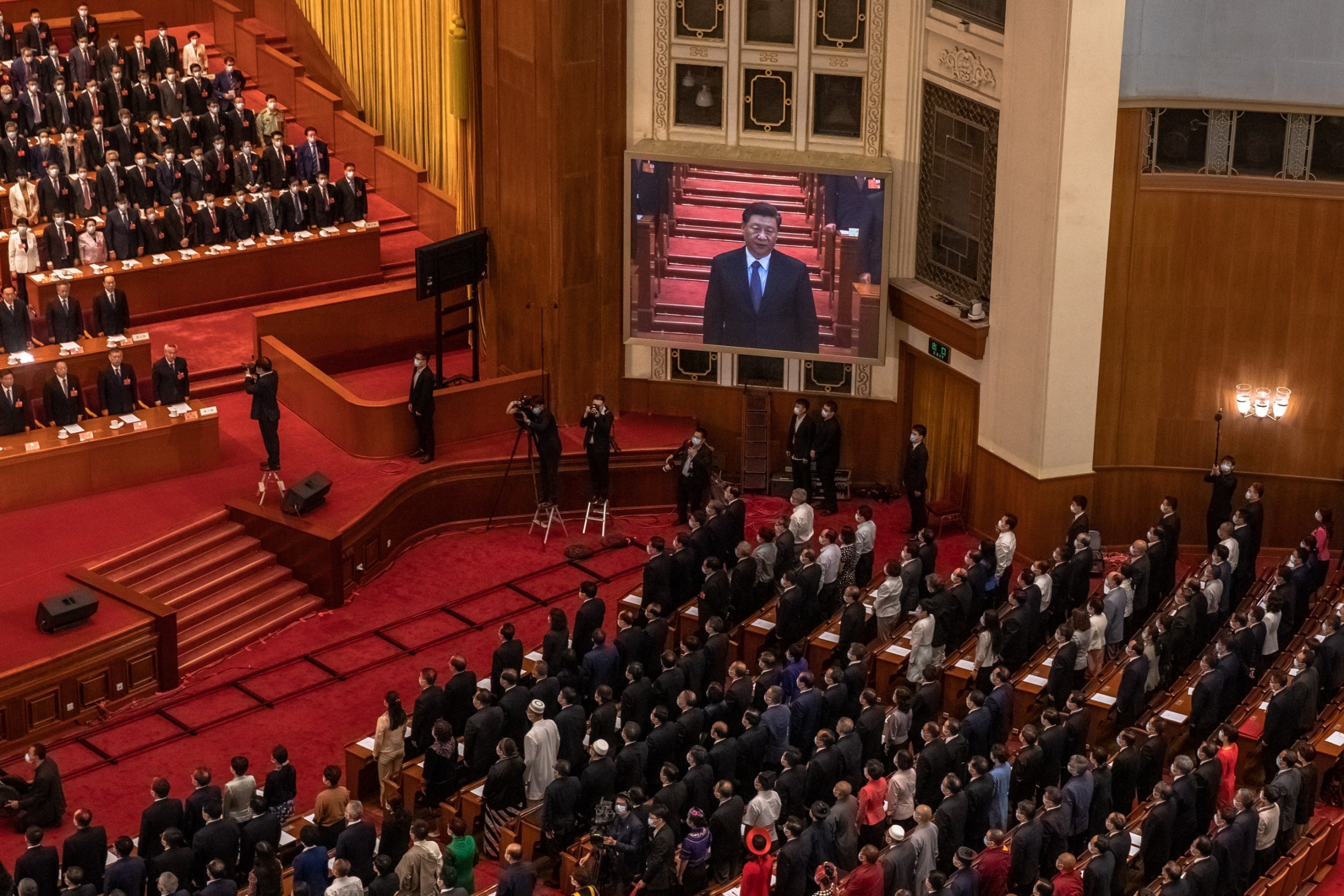Hong Kong protests: Chinese parliament votes to approve controversial security law
Decision to impose the law upon Hong Kong has led to a major backlash both domestically and internationally

China’s rubber-stamp parliament has voted overwhelmingly to approve a controversial new national security law that will be imposed upon Hong Kong, a move which critics say undermines the city’s autonomy.
The new law, details of which are yet to be finalised, will make it a criminal offence in Hong Kong to undermine Beijing’s authority through “any act of treason, secession, sedition or subversion”, and will allow China’s national intelligence agencies to set up bureaux in the city.
Delegates to the Chinese National People’s Congress (NPC) passed the proposal with 2,878 votes in favour. One delegate voted against, and six abstained.
The proposal voted for on Thursday afternoon was not a new law in itself, but rather a “draft decision” in support of a law. Communist Party officials will now draft the new legislation and it could be in force before the end of the summer.
But the decision to impose such a law upon Hong Kong, rather than let the city’s own devolved legislature come up with one itself, has led to a major backlash both domestically and internationally.
Activist Joshua Wong said the decision was “a direct assault on the will of Hong Kongers” and could kill democratic movements.
On Wednesday afternoon, the US said it no longer considered Hong Kong to be autonomous from mainland China, and that Beijing had violated the rights granted to Hong Kong citizens under the handover agreement that saw the city returned to China by Britain in 1997.
Mike Pompeo, the US Secretary of State, said it was “now clear that China is modelling Hong Kong after itself”.
The Trump administration’s announcement has major ramifications, because it could spell the end of Hong Kong’s special trading status with the US – a designation that has, until now, underpinned the city’s role as a global financial powerhouse.
Mr Pompeo said the new security law was “only the latest in a series of actions that fundamentally undermine Hong Kong’s autonomy and freedoms”.
“No reasonable person can assert today that Hong Kong maintains a high degree of autonomy from China, given facts on the ground,” he said in a statement.
In Hong Kong itself, police detained hundreds of people on Wednesday amid violent clashes over attempts to pass another new law, one that would ban displays of disrespect towards the Chinese national anthem and flag.
Riot police were out in force again on Thursday afternoon and some demonstrators gathered in a shopping mall to chant anti-Beijing slogans, but there were no major disturbances of the kind seen the day before.
Three pro-democracy politicians were ejected from Hong Kong’s parliament, the Legislative Council (LegCo), on Thursday morning for disrupting the debate on the new anthem and flag law.
The legislature’s president, Andrew Leung, suspended the meeting minutes after it began and ejected Eddie Chu for holding up a sarcastic sign about a pro-Beijing politician that read “Best Chairperson, Starry Lee.”
A second pro-democracy MP was ejected for yelling after the meeting resumed, and then a third after rushing forward with a large plastic bottle in a cloth bag that spilled its brownish contents on the floor in front of the president’s raised dais.
“We have wanted to use any method to stop this national anthem law getting passed by this legislature, which is basically controlled by the Chinese Communist Party, because the law is just another way of putting pressure on Hong Kong people,” Chu said outside the chamber.
Additional reporting by agencies
Join our commenting forum
Join thought-provoking conversations, follow other Independent readers and see their replies
Comments
Bookmark popover
Removed from bookmarks